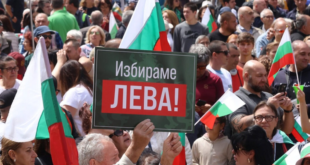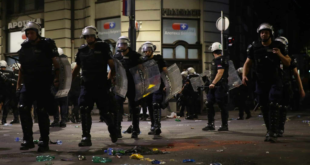The two main Bosniak and Croat parties in Mostar said they would work together on economic issues in the city, putting aside their political disputes over the voting system.
Two key parties in Mostar, the Bosniak Party of Democratic Action, SDA, and the Croatian Democratic Union, HDZ, discussed development of the troubled Herzegovinian city, adding that they had come up with a strategic document to aid the economic situation.
In a meeting on April 8, the two parties discussed the functioning of the city and cantonal authorities and revealed some of their plans.
‘We agreed a strategic document that will contribute to the development of Mostar and speed up employment of people,’ said Bakir Izetbegovic of the SDA, adding this party together with the HDZ will work on holding the elections in Mostar this year.
Mostar has held no elections for six years, owing to disputes over the voting system. In November 2010 and February 2012 the Bosnian Constitutional Court issued two rulings ordering the electoral system to change to give all voters the same rights.
This followed a complaint by Croats on the City Council who said their rights were being violated by an electoral system that gave Bosniaks the same number of councilors even though Croats are the majority group in the city.
Despite the rulings, the electoral system in Mostar has remained unchanged. Mostar’s City Council is currently a unitary authority elected from six voting units. Each unit elects the same number of councilors regardless of the number of voters in the unit.
Mostar is an ethnically divided city and political power is mostly shared between two ethnically-based parties, SDA and HDZ.
Although there have been no exact data on the population or ethnic structure of Mostar since the 1991 census, estimates indicate that Croats now make up a majority of residents.
The HDZ has long argued that in 2004, when former High Representative Paddy Ashdown abolished the municipalities in Mostar, his only aim was to prevent Croats from having more power than Bosniaks, thus discriminating against them.
The SDA solution is to again divide Mostar into municipalities with authority over them given equally to Bosniaks and Croats.
But the two parties have agreed to put the electoral system dispute aside and focus on economic issues. Although they did not reveal concrete details of the strategy to develop Mostar economically, Dragan Covic of HDZ said there would be benefits to it.
‘What was agreed is a strategic partnership between the two parties so that relations of the two ethnic groups may relax,’ Covic said.
‘We are aware we are working in a difficult environment due to the tough social-economic situation in Bosnia and Herzegovina and because we are six months ahead of the elections,’ Covic noted.
‘The strategic document for Mostar agreed with the SDA will attract investors in this region,’ he added.
 Eurasia Press & News
Eurasia Press & News



